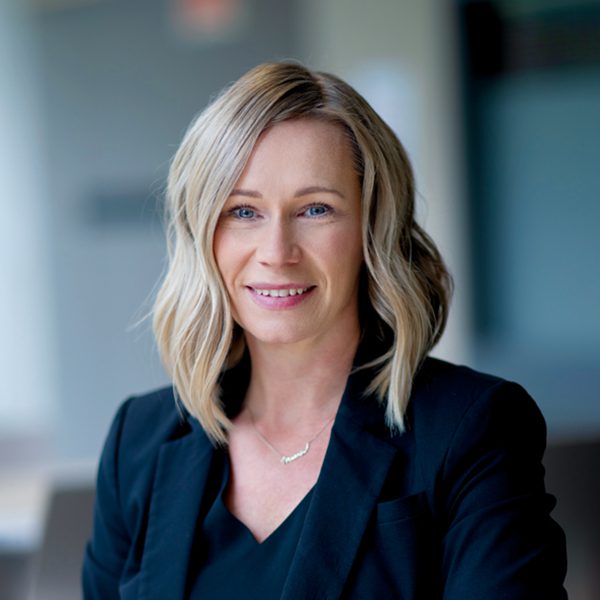
Born and raised in Morden, Man., Tara Horrill [BN/05, PhD/21] always knew she wanted a career in health care. But it was while working as an oncology nurse at CancerCare Manitoba that she became drawn to research.
In that role, she observed that Indigenous cancer patients had a disproportionately poor rate of survival.
“I was there for 10 years, and I saw too many First Nation and Inuit patients diagnosed at very late stages – and with cancers that could have been detected and treated a lot earlier,” she says.
“There have been incredible advances in how cancer is detected and treated, but these advances have not benefited all populations in the same way.”
Horrill returned to the UM College of Nursing, where she had earned her bachelor’s degree, in 2014. She fast-tracked into the PhD program in 2016. In 2021, she was awarded a postdoctoral fellowship at the University of British Columbia, with a cross-appointment at BC Cancer.
She rejoined the College of Nursing as an assistant professor in 2022. At the same time, she received a grant from the U.S.-based Oncology Nursing Society to study how organizations like CancerCare Manitoba and BC Cancer can facilitate an equity-oriented approach to care.
In this project, to be published later this year, Horrill led a multi-disciplinary team of researchers and health-care providers with the goal of integrating approaches that include culturally safe, anti-racist cancer care and harm-reduction philosophies.
We asked Horrill three questions.
What has struck you or surprised you about patients’ access to cancer care?
There are so many barriers. I could talk about income as a barrier, but it’s so much more than that. It’s how someone’s income compounds with issues like access to transportation or a lack of social supports. It becomes a complex set of interconnected factors.
A physician I interviewed said something I’ll never forget. She works very closely with people experiencing mental health and substance abuse challenges, many of whom are unstably housed and have trouble accessing care.
She said, “Many of my patients would rather die than get care for their cancer.” That was profound and eye-opening for me – realizing that the level of trauma people have experienced in the health-care system can make them avoid seeking care.
What are some equity-based approaches that you found could improve care for Indigenous and other marginalized cancer patients?
We need to avoid pan-Indigenous approaches and get more specific to the needs of First Nations, Métis and Inuit people, and the approaches need to be determined by Indigenous people themselves.
As health-care providers, we get accustomed to the environments we work in and don’t realize what it’s like to walk into them. We’ve heard from research participants that some of our hospitals look like residential schools, which can be triggering. We need to listen to patients’ input on what aspects of clinics or hospitals make them feel overwhelmed and unwelcome.
Health-care organizations also need to be more flexible. One example is that they often have formal or informal missed-appointment policies. These end up disproportionately impacting people who experience different forms of disadvantage.
There are many reasons folks can’t make it to their appointments that might not necessarily be their fault. When you’re facing challenges like finding the next meal, those things tend to take priority.
What are you working on now?
I just launched a study funded by the Canadian Cancer Society. It’s looking at barriers to accessing lung cancer care for people experiencing socioeconomic disadvantage in Manitoba.
I’m also working with partners at CancerCare Manitoba on a proposal to determine how to better identify patients who have significant social needs.
If we can improve intake assessments, we can identify who would benefit from additional resources to support their access to cancer care. Ideally, we can improve their cancer journey.
BY ALAN MACKENZIE
